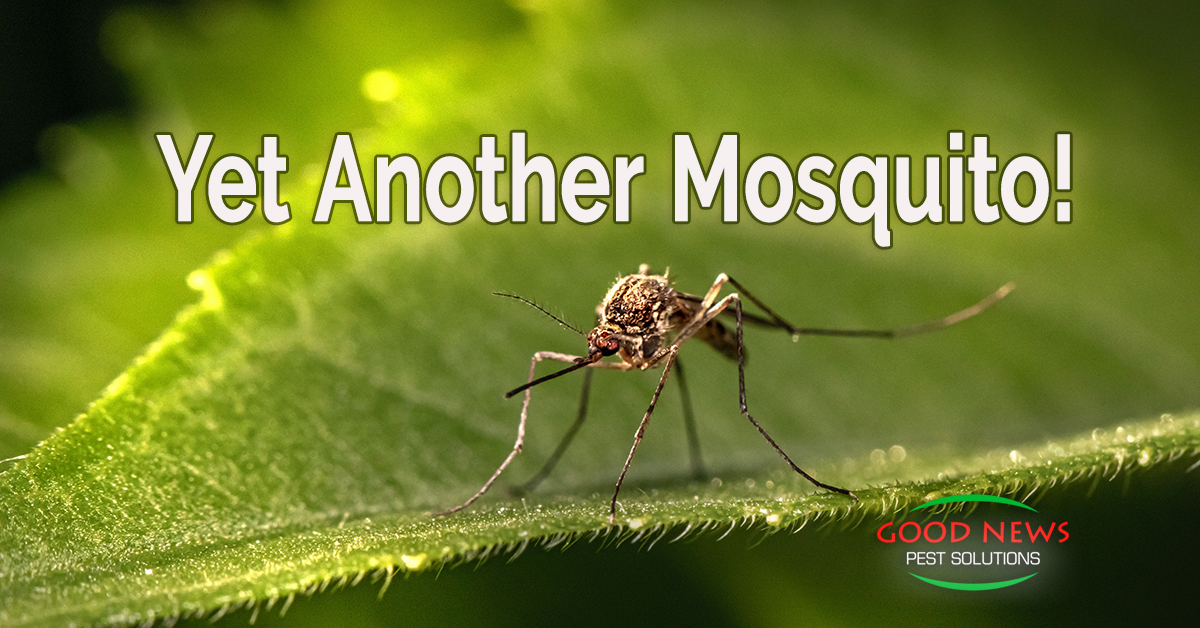
Yet Another Mosquito!
The bites just keep on coming.
A dangerous mosquito species, so far unknown to our hemisphere, may be making its way to our shores sooner rather than later.
One thing Florida tends to be known for in the entomological world is invasive species. Thanks to our weather, location and constant influx of travelers from all across the globe, we see a new insect species enter the Sunshine State about every 5 weeks.
In 1995, the Florida Entomological Society reported some 12,500 insect species in Florida. And much like the human population, only about 15% of them are natives. As many as ten new bug species come in every year.
Monitoring Malaria Spread
The Anopheles stephensi mosquito is native to South Asia and the Arabian Peninsula. But earlier this year, researchers in Kenya spotted the new-to-us mosquito species.
Of course, no one wants to be bitten by any mosquito, but the Anopheles stephensi is dangerous for several reasons.
For most of the world malaria is a seasonal disease. Like Zika virus and dengue fever, it’s primarily transmitted during the times of the year when the mosquitoes that carry it are most active. But the Anophles mosquito is known to spread very fast to new areas, regardless of climatic and environmental conditions.
They breed rapidly and don’t take long hibernation periods unless they have to. They also spread quickly geographically. In just 10 years, they’ve gone from mostly in South Asia to several countries on the African continent – each step getting closer to South America. From there it’s just a few hops to North America.
Further, because of their adaptation to harsher conditions, the Anopheles stephensi could infest a country and create an environment where malaria is transmitted 24/7/365. Just one or two of those and the forward progress made in the last 10 years of radically reducing malaria among the African population is irrevocably damaged.
WHO Will Take a Stand
The World Health Organization (not ‘The Doctor’) is drawing a line in the sand.
As we mentioned earlier, other African nations have seen the Anopheles stephensi mosquito in years prior to its appearance in Kenya. The tiny country of Djibouti was the first to spot the invasive species back in 2012.
At the time, they only had 27 cases of malaria and it looked like it would be all but eradicated in the next 5-10 years. Instead, by 2020, there were more than 73,500 cases of malaria in a nation of just over 1-million people.
Colonel Dr Abdoulilah Ahmed Abdi, a health advisor to Djibouti’s president, says, “Stephensi is very competitive and efficient in malaria transmission. At the same time, it’s very adaptable to urban areas.”
In fact, the National Academy of Sciences published a study in 2020 that extrapolated an additional 126 million people could be at risk of the disease if left unchecked. To that end, WHO launched an initiative to stop the spread of both the Anopheles stephensi and our old friend, Aedes aegypti – the one that spreads dengue fever, zika virus, chikungunya and yellow fever.
While it may be some time before Anopheles stephensi makes it to the Gulf Coast of Florida, we still deal with Aedes aegypti and other mosquitoes on a daily basis. If our temperatures cool soon, we may get some reprieve, but it’s not likely. Be sure to eliminate any standing water - and if you must go out at night, consider long sleeves and pants.
For individual backyards, we still have our exclusive No Bite Zones Mosquito Protection Paqs, that transform biting momma mosquitoes into harmless pollinating vegans. Keep your BBQ, Halloween/harvest block party – or Thanksgiving dinner – free from mosquito bites.
For more details and to find out how to get your supplies delivered with your regular Go Green Perimeter Plus service, just give us a call!
Proudly Serving
Sun City Center, Ruskin, Palmetto, Parrish, Ellenton, Bradenton, Anna Maria, Holmes Beach, Bradenton Beach, Longboat Key, Lakewood Ranch, University Park, Myakka City, Sarasota, Siesta Key, Osprey, Nokomis, Casey Key, Venice, Englewood, North Port, Port Charlotte, Punta Gorda, Arcadia
Things You Can Do
Pay Your Bill Online
Leave Us a Review
Request a Free* Termite Inspection
Stop Mosquito Bites
Get Rid of Rodents
Get a Termite Damage Warranty
Get Pest Control for Your Attic
Get Pest Control for Your Business Request Prayer
Corporate Address
1080 Enterprise Court, Ste A
North Venice, FL 34275
Call Now: (941) 412-9610
Text: (941) 412-9610
Fax: (941) 412-0080
